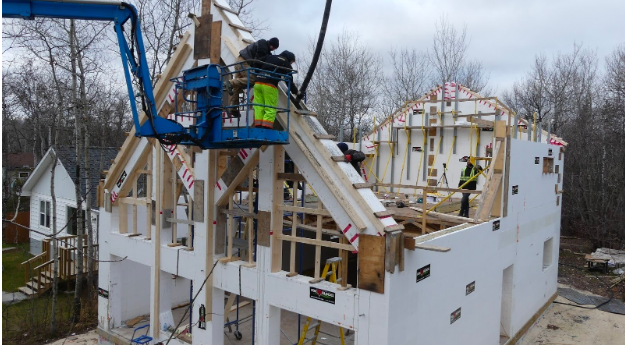
Record-Low HERS Index Score Attained with Net-Zero Insulated Concrete Form (ICF) Home

The Best Vapor Systems for Basement Walls

Insulated Concrete Forms (ICF) Vs. Wood-Frame Construction
Insulated concrete forms (ICF) create a more energy-efficient, quiet, and healthy building than one built with wood-frame construction. ICF buildings are also more resistant to disaster, fire, insect, and moisture intrusion than wood-frame structures.

What Is the Cost of Building a Net Zero Home?

A Guide to Selecting the Best Siding for Your ICF Wall
Building an ICF house allows for the application of many types of exterior finishes. The choice of exterior finish comes down to your personal decision, cost, and local styles.

Replacing Disposable Homes with Durable ICF Construction
In regions prone to hurricanes, tornadoes, and wildfires, Fox Blocks ICF wall assembly provides an excellent alternative to wood-frame construction.

Building Safety Standards Guide
Safety in construction is not just about compliance; it’s about commitment. A commitment to protect lives, preserve investments, and not to exceed the boundaries of what buildings can withstand.

ICF vs. Steel Framing: Which Is Best For Commercial Construction?
ICFs have been used with great success for projects such as hotels, theatres, multi-story residential, office, retail, mixed-use retail, educational projects and all manner of public works and federal military applications. However, some people argue that Steel Framing is best for commercial construction, so we decided to get to the bottom of the ICF vs. Steel Framing face-off.

Considerations for Building an Energy-Efficient Home in Texas
How to Build Energy-Efficient Home in Texas: Things to Consider

How to Build a Warehouse the Right Way